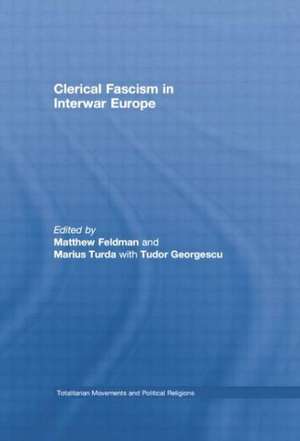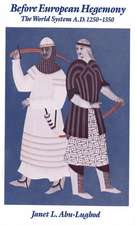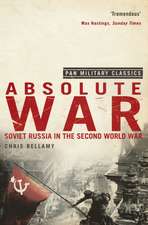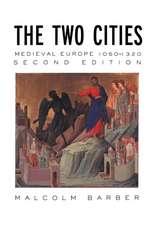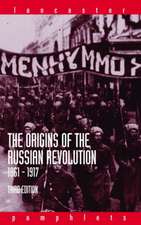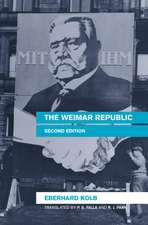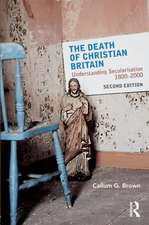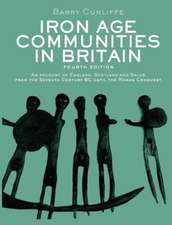Clerical Fascism in Interwar Europe: Totalitarianism Movements and Political Religions
Editat de Matthew Feldman, Marius Turda, Tudor Georgescuen Limba Engleză Paperback – 15 aug 2014
In light of recent debates concerning the intersecting secularisation of religion and (usually Christian-based) the sacralisation of politics, "Clerical Fascism" in Interwar Europe approaches such conundrums from an alternative perspective: How, in Europe between the wars, did Christian clergy, laity and institutions respond to the rise of national fascist movements? In doing so, this volume provides case studies from the vast majority of European countries with analyses that are both original in intent and comprehensive in scope. In dealing with the relationship of various interwar fascist movements and their respective national religious institutions, this edited collection promises to significantly contribute to relevant academic historiographies; and as such, will appeal to a wide readership.
This book was previously published as a special issue of Totalitarian Movements and Political Religions.
| Toate formatele și edițiile | Preț | Express |
|---|---|---|
| Paperback (1) | 417.41 lei 6-8 săpt. | |
| Taylor & Francis – 15 aug 2014 | 417.41 lei 6-8 săpt. | |
| Hardback (1) | 1061.81 lei 6-8 săpt. | |
| Taylor & Francis – 24 mai 2008 | 1061.81 lei 6-8 săpt. |
Preț: 417.41 lei
Nou
Puncte Express: 626
Preț estimativ în valută:
79.87€ • 87.03$ • 67.30£
79.87€ • 87.03$ • 67.30£
Carte tipărită la comandă
Livrare economică 23 aprilie-07 mai
Preluare comenzi: 021 569.72.76
Specificații
ISBN-13: 9781138011380
ISBN-10: 113801138X
Pagini: 272
Dimensiuni: 174 x 246 x 13 mm
Greutate: 0.48 kg
Ediția:1
Editura: Taylor & Francis
Colecția Routledge
Seria Totalitarianism Movements and Political Religions
Locul publicării:Oxford, United Kingdom
ISBN-10: 113801138X
Pagini: 272
Dimensiuni: 174 x 246 x 13 mm
Greutate: 0.48 kg
Ediția:1
Editura: Taylor & Francis
Colecția Routledge
Seria Totalitarianism Movements and Political Religions
Locul publicării:Oxford, United Kingdom
Public țintă
PostgraduateNotă biografică
Matthew Feldman is a Lecturer in Twentieth Century History at the University of Northampton and editor of the journal Totalitarian Movements and Political Religions.
Cuprins
Chapter 1 The ‘Holy Storm’, Roger Griffin; Part 1 Orthodox/Greek-Orthodox Christianity and Fascism; Chapter 2 Fascism and Religion, Aristotle A. Kallis; Chapter 3 Between ‘Clerical Fascism’ and Political Orthodoxy, Maria Falina; Chapter 4 Sacralised Politics in Action, Valentin S?ndulescu; Chapter 5 By Cross and Sword, Anton Shekhovtsov; Part 2 Protestant Christianity and Fascism; Chapter 6 ‘On the Side of Christ’, Thomas Linehan; Chapter 7 Completing the Lutheran Reformation, Lena Berggren; Chapter 8 The Nazis’ ‘Positive Christianity’, Richard Steigmann-Gall; Part 3 Catholic Christianity and Fascism; Chapter 9 Catholic Modernities in Fascist Italy, Jorge Dagnino; Chapter 10 Catholicism and Fascism in Belgium, Bruno De Wever; Chapter 11 Political Catholicism, Crisis of Democracy and Salazar’s New State in Portugal, António Costa Pinto, Maria Inácia Rezola; Chapter 12 Enacting Encyclicals? Cultural Politics and ‘Clerical Fascism’ in Austria, 1933–1938, Robert Pyrah; Chapter 13 Radical Catholicism and Fascism in Croatia, 1918–1945, Mark Biondich; Chapter 14 Catholicising Fascism, Fascistising Catholicism? The Blueshirts and the Jesuits in 1930s Ireland, Mike Cronin; Chapter 15 ‘Do not Lead us into (Fascist) Temptation’, Béla Bodó; conclusion ‘Clerical Fascism’, John Pollard;
Descriere
This groundbreaking volume explores the relationship between various Christian confessions, such as Catholic, Protestant, Orthodox, and national fascist movements across interwar Europe.
